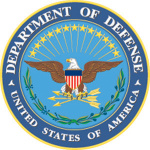- 行业: Government; Military
- Number of terms: 79318
- Number of blossaries: 0
- Company Profile:
Association established December 8, 1991, by Russia, Belarus, and Ukraine as the successor to the Union of Soviet Socialist Republics (USSR) in its role of coordinating the foreign and economic policies of its member nations. All former republics of the USSR, excluding the Baltic states, are members of the CIS, which is headquartered in Minsk, Belarus.
Industry:Military
Protection resulting from all measures designed to deny unauthorized persons information of value, which might be derived from the possession and study of telecommunications, or to mislead unauthorized persons in their interpretation of the results of such possession and study. Includes cryptosecurity, transmission security, emission security, and physical security of communications security materials and information.
Industry:Military
Activities conducted which: 1) support implementation of an arms control agreement; 2) are not in violation of provisions of an arms control agreement; or 3) ensure existing and future programs and operations are in accord with the international obligations of an arms control agreement.
Industry:Military
Department of Defense working group designed to conduct an executive-level review of compliance issues. Established for each arms control agreement as needed. Meets on an ad hoc basis to address critical issues.
Industry:Military
The Conference of States Parties is the principal organ of the Organization for the Prohibition of Chemical Weapons (OPCW). The Conference oversees Chemical Weapons Convention implementation, acts to promote its object and purpose, and oversees the activities of the executive council and technical secretariat (the two other OPCW organs). The Conference is composed of one representative from each OPCW member and is entitled to consider any questions, matters or issues related to the Chemical Weapons Convention.
Industry:Military
Activities such as notifications, exchanges of observers, prior notification of military movements, and visits by observers. Accompanied the activities of the Conference for Security and Cooperation in Europe and were first introduced by the Helsinki Final Act in 1975 to reduce the dangers of armed conflict, misunderstanding, or miscalculation of military activities. Many of these features are now embedded in arms control and other agreements in the form of data exchanges/declarations, missile launch notifications, inspection activities, and voluntary presentation for national technical means.
Industry:Military
Information considered sensitive or proprietary requiring protection from disclosure or exploitation.
Industry:Military
Under the Chemical Weapons Convention, a “Confidentiality Annex” requires the Organization for the Prohibition of Chemical Weapons to collect only the minimum amount of information and data necessary to execute its responsibilities and take measures to ensure all sensitive and proprietary information pertaining to the verification of civil and military activities and facilities be kept confidential and protected. New and emerging treaties and agreements may have similar confidentiality provisions.
Industry:Military
Rights of persons (individuals or corporations) derived from the United States Constitution. Issues of constitutional rights may arise in connection with the implementation of the Chemical Weapons Convention, particularly with respect to personnel interviews (Fifth Amendment) and challenge inspections (Fourth Amendment).
Industry:Military
Under the Chemical Weapons Convention, denotes the presence of inspectors at a specified facility (24 hours a day, 7 days a week) for the purpose of observing compliance verification activities.
Industry:Military
